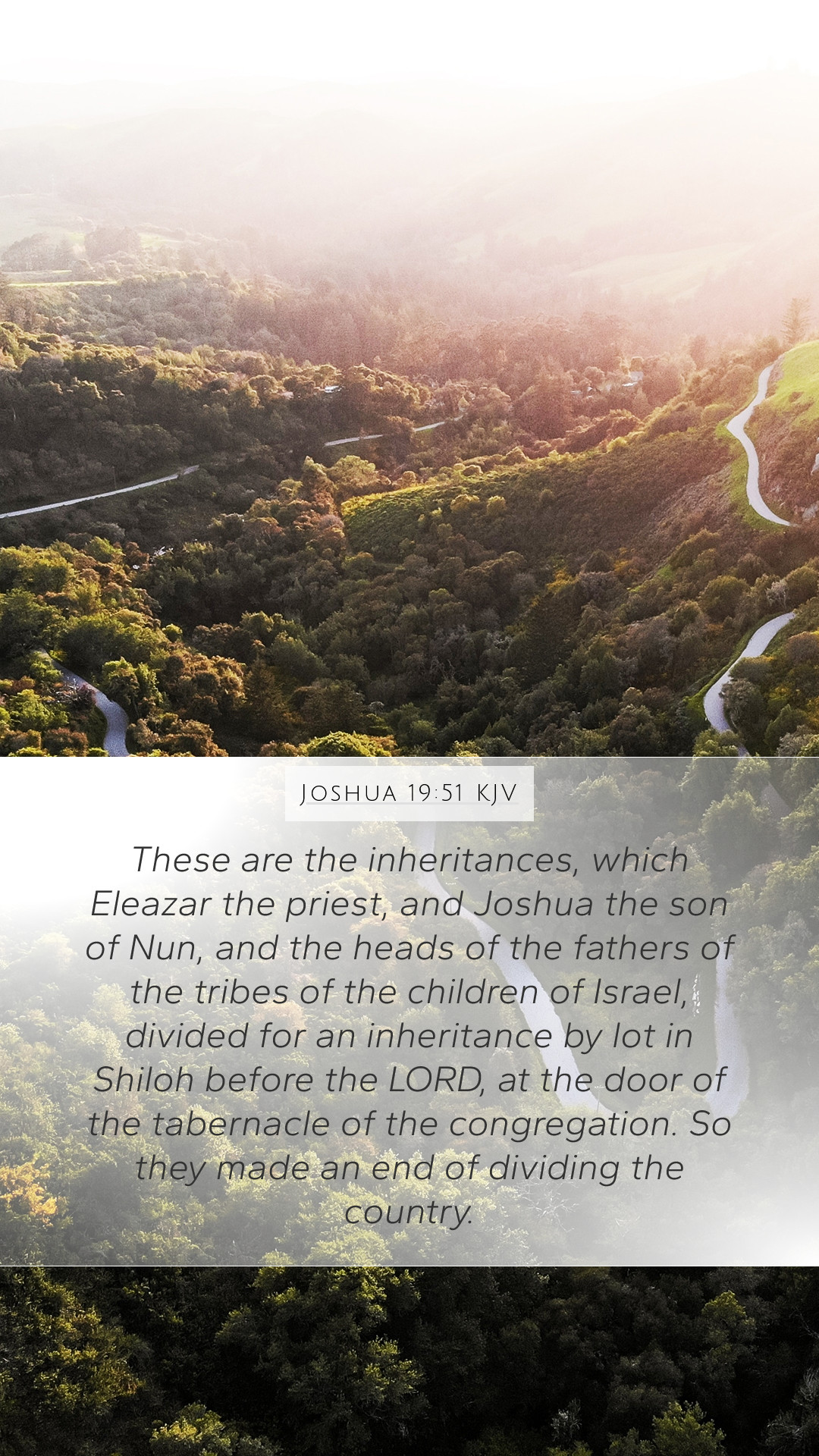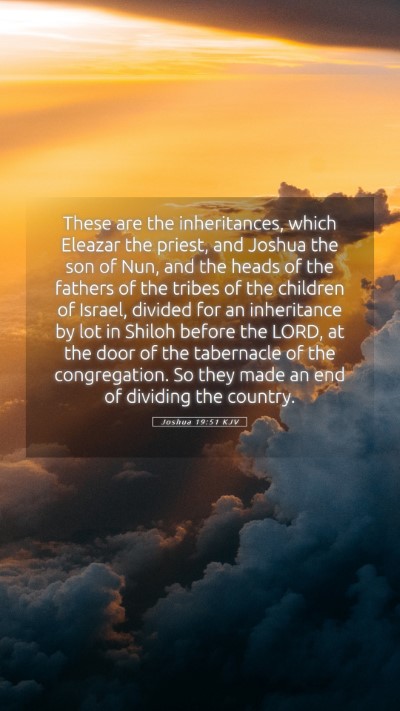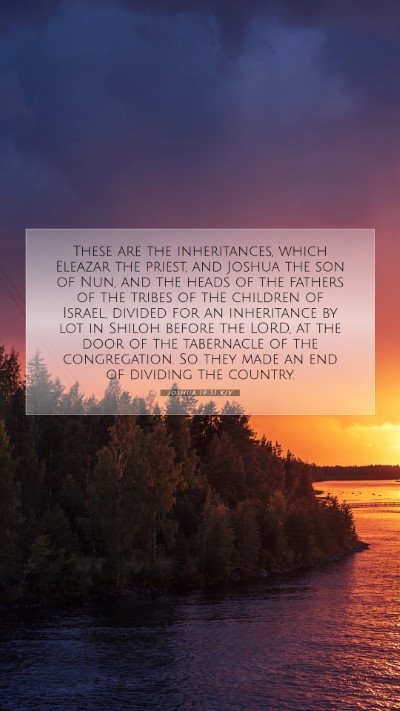Bible Verse Commentary: Joshua 19:51
Verse: "These are the inheritances, which Eleazar the priest, and Joshua the son of Nun, and the heads of the fathers of the tribes of the children of Israel, distributed by lot in Shiloh before the Lord at the door of the tabernacle of the congregation. And so they made an end of dividing the country."
This verse marks the conclusion of the territorial distribution among the tribes of Israel, a process filled with both significance and historical context. Understanding the broader themes and implications of this verse involves interpreting the intention behind the allocation of land, recognizing its impact on Israel's identity, spiritual life, and future governance.
Contextual Overview
The Book of Joshua depicts the conquest and settlement of Canaan by the Israelites. Joshua 19 discusses the division of the remaining land among the tribes, showcasing the fulfillment of God's promises to His people.
Commentary Insights from Public Domain Sources
- Matthew Henry:
Henry emphasizes the orderly manner in which the land was divided, stressing the importance of divine guidance in these proceedings. The participation of the high priest and the leaders signifies the spiritual oversight necessary for such a monumental task, as they seek God's will in bestowing each tribe their respective inheritances.
- Albert Barnes:
Barnes highlights the role of Shiloh as a central place of worship and gathering for Israel. This location is significant for it is in Shiloh that the tabernacle resided, symbolizing God's presence among His people. The act of distributing land before the Lord indicates the reverence and reliance the Israelites had on divine providence as they took possession of the land.
- Adam Clarke:
Clarke offers a detailed analysis of the roles of Eleazar, Joshua, and the tribal heads in the context of leadership. He suggests that the collaborative method of these leaders in distributing the land reflects harmony and unity among the tribes. The emphasis on lots also underscores the principle that ultimately, the land is a gift from God, determined by His sovereign will.
Symbolism and Significance
The division of land represents several broader spiritual truths:
- God's Faithfulness:
This act illustrates the fulfillment of God's promises to the patriarchs regarding the land of Canaan (Genesis 12:7). It serves as a reminder of His unwavering commitment to His covenant.
- Community and Responsibility:
Each tribe receiving its own inheritance emphasizes the shared responsibility among the Israelites. Every tribe's prosperity depended on their faithfulness to God and the observance of His laws.
- Spiritual Inheritance:
Beyond physical land, the scripture also calls to mind the spiritual inheritance believers have in Christ, an eternal promise that transcends earthly possession.
Applications of the Verse
Applying the lessons gleaned from Joshua 19:51 to daily life involves recognizing the need for God’s guidance in our decisions and aspirations:
- Seek God in prayer when faced with important decisions.
- Value and respect the roles of community leaders and spiritual guides.
- Consider what your 'inheritance' is in your own life—what gifts has God given you to cultivate and share?
Cross References
- Genesis 12:7 - God's promise of the land to Abraham.
- Numbers 34:17-29 - Instructions on how to divide the land.
- Joshua 14:1-5 - The distribution of inheritances to the tribes.
Conclusion
Joshua 19:51 encapsulates a pivotal moment in Israelite history—one that embodies the realization of divine promise, the establishment of community governance, and the importance of spiritual oversight. This verse provides valuable Bible verse meanings tailored for those seeking a Bible verse explanation that fosters deeper Bible study insights. By understanding these themes, readers can engage with the text in a meaningful way, making connections that inform both personal faith journeys and communal practices.


